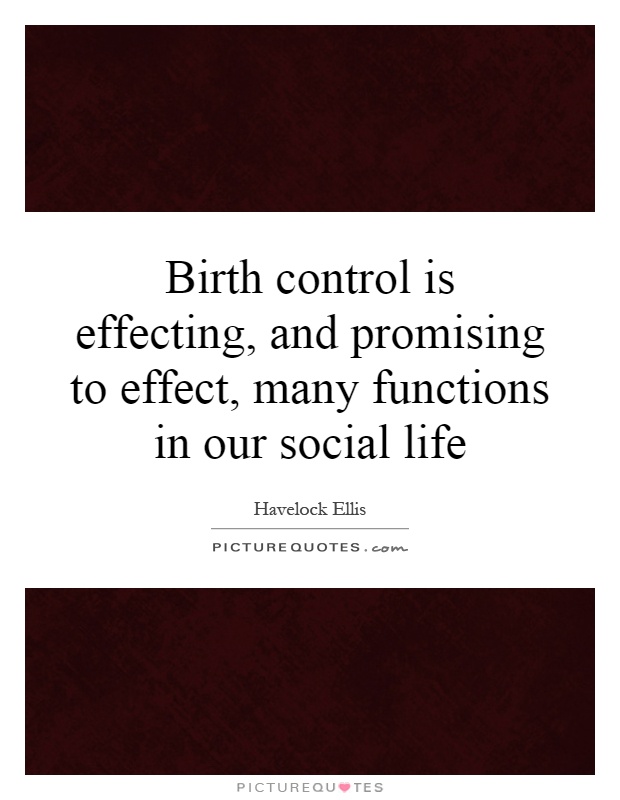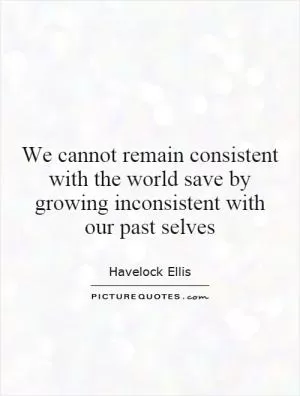Birth control is effecting, and promising to effect, many functions in our social life

Birth control is effecting, and promising to effect, many functions in our social life
Havelock Ellis was a pioneering figure in the field of sexology and a strong advocate for birth control. He believed that access to contraception was essential for women to have control over their own bodies and reproductive choices. Ellis recognized that birth control had the potential to revolutionize social norms and relationships by allowing individuals to plan their families and control their fertility.One of the key ways in which birth control has impacted social life is by empowering women to make decisions about their own bodies and reproductive health. Prior to the widespread availability of contraception, women had limited control over when and how many children they would have. This lack of control often led to unwanted pregnancies, which could have negative consequences for women's health, economic stability, and overall well-being. Birth control has allowed women to take charge of their reproductive health and make informed choices about when and if they want to have children.
Additionally, birth control has had a significant impact on relationships and family dynamics. The ability to plan pregnancies has allowed couples to make decisions about when to start a family, how many children to have, and how to space out their children. This has led to more stable and fulfilling relationships, as couples can focus on building a strong foundation before starting a family. Birth control has also allowed individuals to pursue education, careers, and personal goals without the fear of unplanned pregnancies derailing their plans.
Furthermore, birth control has played a role in shaping societal attitudes towards sexuality and gender roles. By giving individuals the ability to control their fertility, birth control has challenged traditional notions of gender and sexuality. It has allowed women to assert their autonomy and independence, and has paved the way for greater gender equality in society. Birth control has also helped to destigmatize discussions about sex and reproductive health, leading to more open and honest conversations about these important topics.












 Friendship Quotes
Friendship Quotes Love Quotes
Love Quotes Life Quotes
Life Quotes Funny Quotes
Funny Quotes Motivational Quotes
Motivational Quotes Inspirational Quotes
Inspirational Quotes